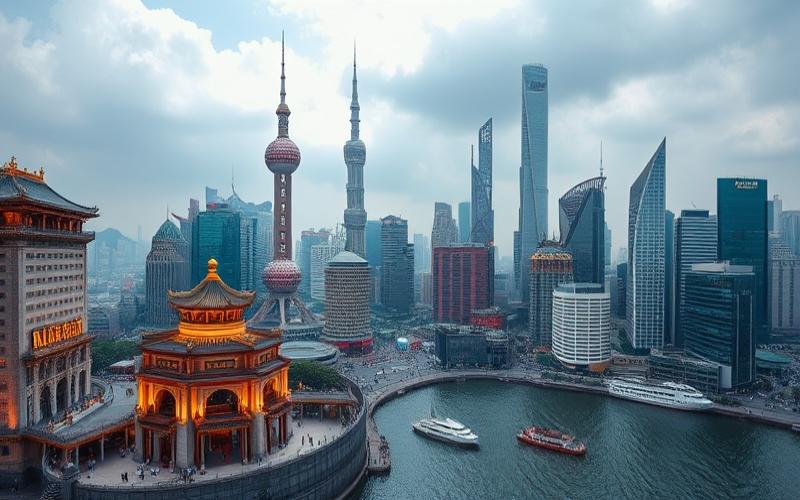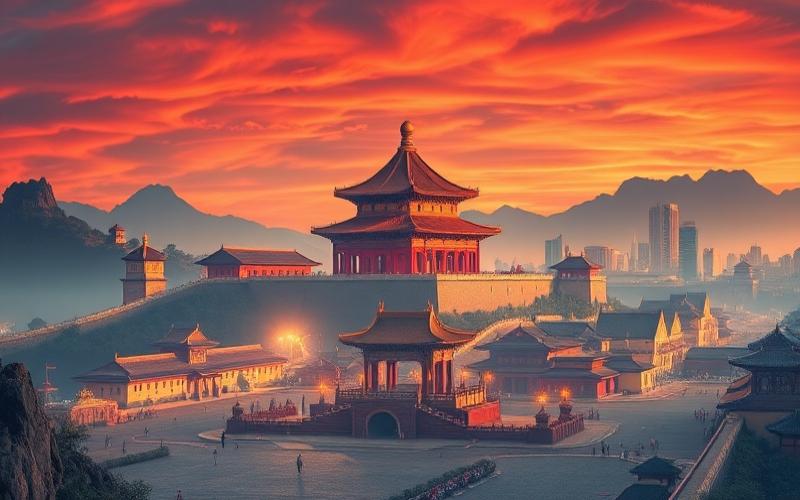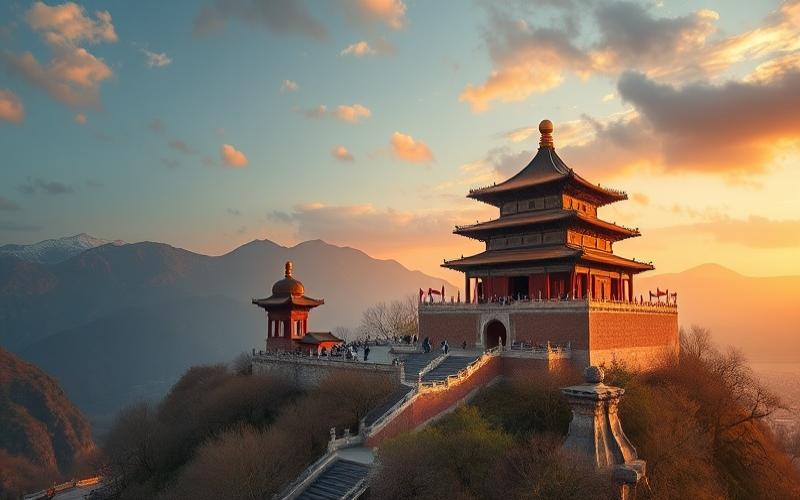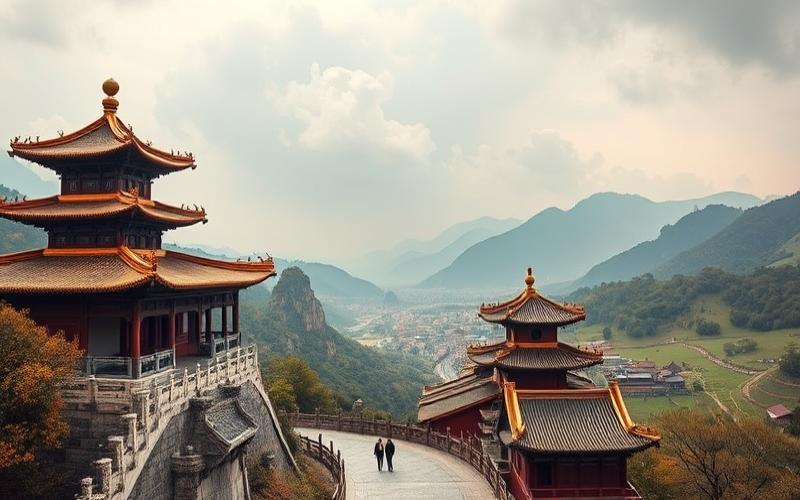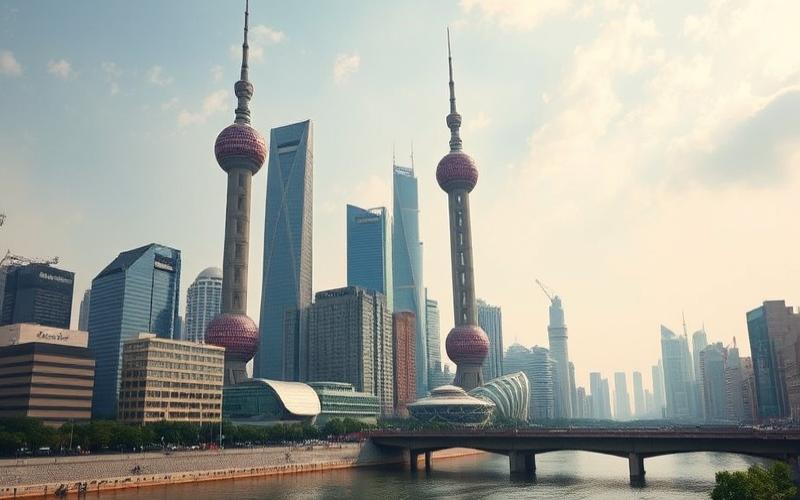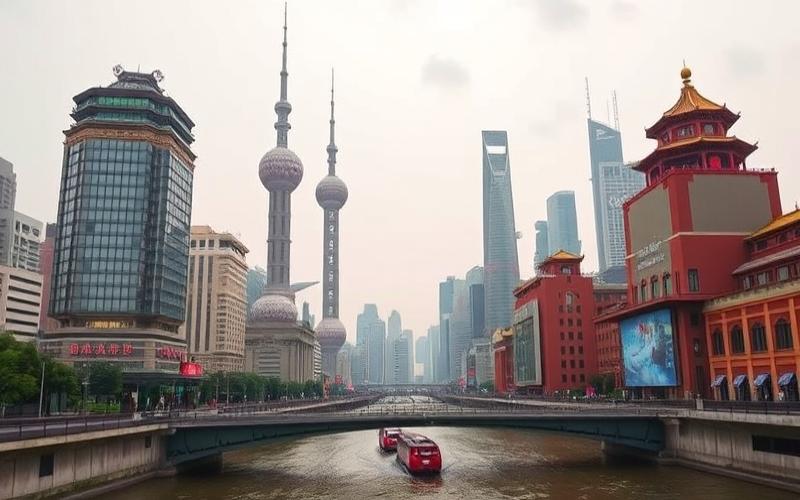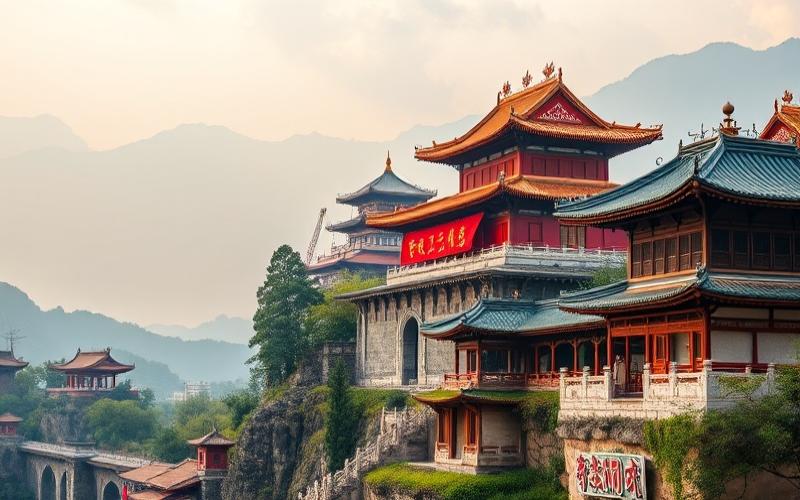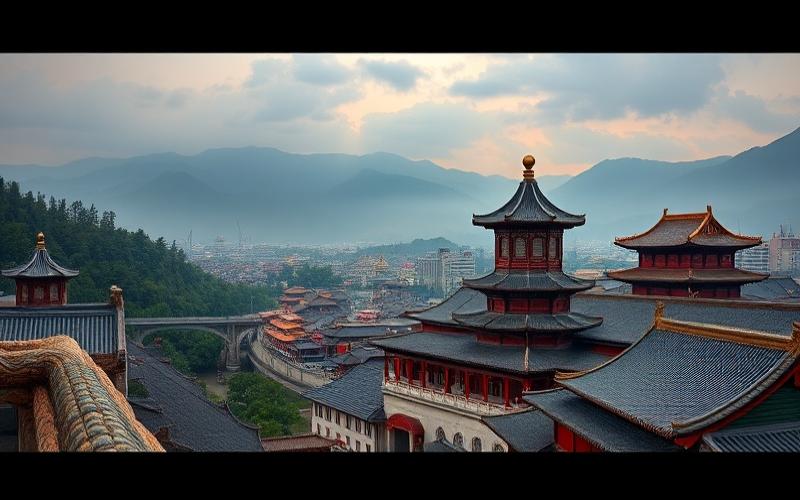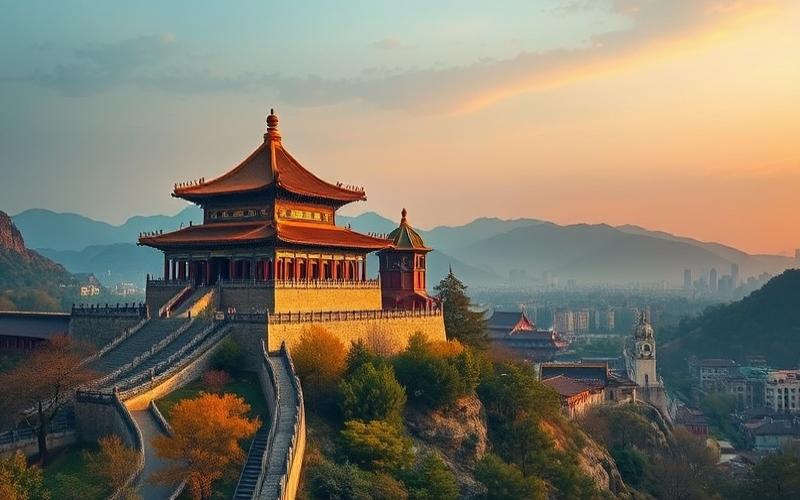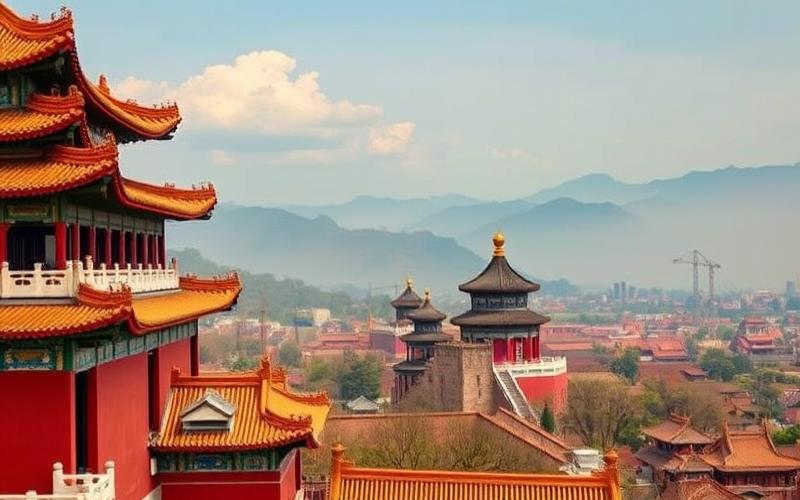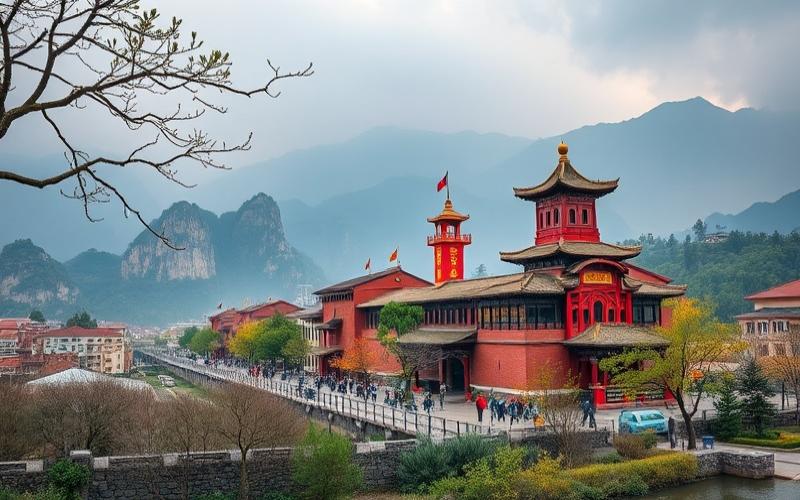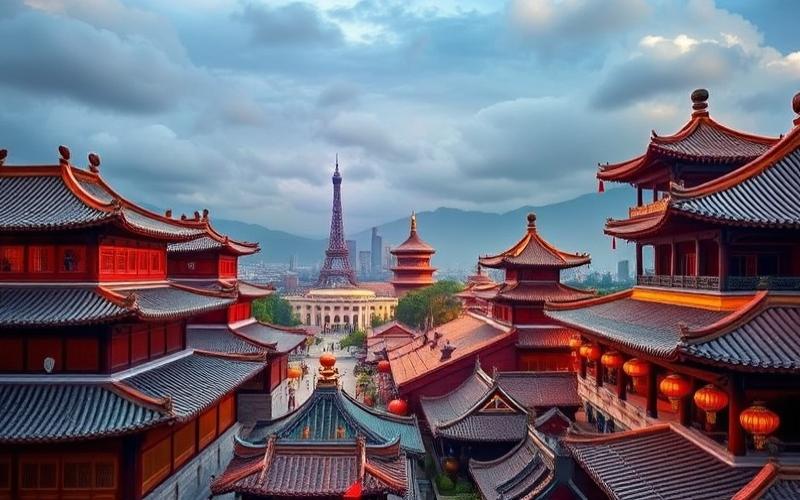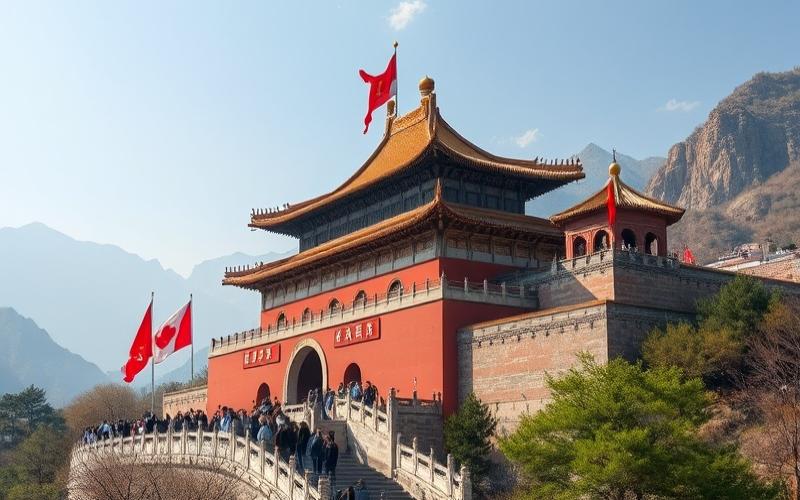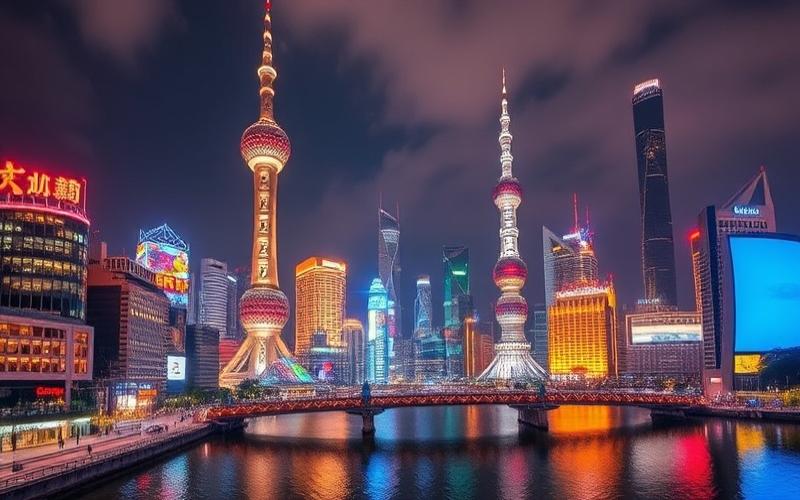
 Published on and written by Cyril Jarnias
Published on and written by Cyril Jarnias
An immersion into China’s nightlife reveals a fascinating mosaic of experiences, ranging from trendy Shanghai bars to lively Beijing nightclubs, including traditional tea houses where culture and modernism harmoniously intersect.
China’s major cities, vibrant and dynamic, light up after dark, offering night owls a wide array of options for entertainment, relaxation, or exploring hidden unusual spots.
Whether you’re a live music enthusiast, passionate about contemporary art, or simply seeking a good meal at midnight, China stands out as an essential destination for every nightlife enthusiast.
Discover China’s Must-See Nightlife Spots
Shanghai
Popular Neighborhoods
- The Bund: Iconic riverside promenade along the Huangpu River, famous for its spectacular views of Pudong’s illuminated skyscrapers and sophisticated cocktail bars.
- Former French Concession: Small lanes filled with intimate bars, jazz cafes, and retro-themed clubs.
- Pudong: Modern district with rooftop bars offering panoramic city views.
Iconic Venues
- Cotton Club (jazz): Known for live concerts blending international jazz with local influences. Relaxed atmosphere, ideal for authentic music lovers.
- California Club (hip-hop): Popular spot among expatriates, featuring vibrant red decor and lounge ambiance late into the night.
Tips & Practical Information
- Clubs typically open around 6–8 PM and close between midnight and dawn depending on crowd levels.
- Some rooftops require smart attire; reservations recommended on weekends.
Beijing
Popular Neighborhood
- Sanlitun: Epicenter of Beijing nightlife. Trendy bars, craft microbreweries, international restaurants. Cosmopolitan crowd mixing young local professionals and expatriates.
Iconic Venues
Numerous bars with lively terraces in summer; karaoke widespread in typical Asian venues (KTV).
Atmosphere & Recommendations
- Wide music selection: international pop, electronic, or local live bands depending on the venue.
- Sanlitun is particularly appreciated for its relaxed yet festive atmosphere.
Practical Information
- Easy subway access (Tuanjiehu or Dongsi Shitiao stations).
- Variable opening hours: most bars close around 2–3 AM; some clubs stay open until dawn.
Hong Kong
| Neighborhood | Specifics | Typical Hours | Tips for Foreign Visitors |
|---|---|---|---|
| Lan Kwai Fong | Unique concentration of Western pubs, trendy nightclubs, Japanese karaoke | Noon-midnight for bars | Budget accordingly |
| Central | After-work: lively atmosphere among trendy expatriates | Until late night | High security; easy MTR access |
| Wan Chai | Varied bars at reasonable prices; numerous Irish pubs | Evening – early morning | Ideal for exploring multiple vibes |
| Tsim Sha Tsui | Luxury nightclubs with high-end service; local/tourist mix | Mainly evening-early morning | Prefer taxi/MTR after midnight |
In the evening, enjoy a nighttime cruise on Victoria Harbour or stroll among the bright neon lights of shopping streets. International DJs regularly perform at prestigious clubs around Lan Kwai Fong; elsewhere you’ll also find live concerts or themed parties.
General Tips
- Bring ID: some clubs require a passport for entry.
- Contactless payment accepted everywhere (WeChat Pay/Alipay recommended).
- Public transportation runs until around midnight in all major cities; beyond that, prefer official taxis or secure ride-sharing services.
Good to Know:
In Shanghai, start your evening at the Bund, where bars like Glam offer stunning skyline views accompanied by jazz music for a chic atmosphere. Beijing doesn’t lack appeal with the Sanlitun district, famous for its numerous bars and clubs, notably Mix Club offering electrifying electronic music parties until dawn. Hong Kong, meanwhile, never sleeps thanks to Lan Kwai Fong, where venues like Dragon-i, blending fusion cuisine and electronic beats, attract a cosmopolitan crowd. Be sure to check the often late hours and prioritize public transportation or taxis for convenience, especially for first-time visitors who might be disoriented by the intense nightlife activity.
Bars and Clubs Igniting the Nightlife Scene
Iconic Bars and Clubs in China
| City | Venue | Music Type / Atmosphere | Parties and Artists | Hours & Entry Rules | Special Features |
|---|---|---|---|---|---|
| Shanghai | Bar Rouge | House, Electronic, Hip-Hop, Live DJ | Regular themed parties, international DJs | 9 PM-4 AM, often paid entry, proper attire required | Bund view, iconic rooftop |
| Shanghai | M1NT | Electronic, House, Hip-Hop | Famous DJs and artists, private parties | 10 PM-5 AM, entry selection, strict dress code | Shark aquarium, luxury ambiance |
| Shanghai | The Nest | Electronic lounge, live sets | Cocktail parties, resident DJs | 6 PM-2 AM, free or moderate entry | High-end cocktail bar |
| Beijing | Dada Beijing | Techno, House, Indie, Electronic | Alternative parties, local and international DJs | 9 PM-3 AM, moderate entry, relaxed atmosphere | Underground scene meeting point |
| Beijing | Lantern Club | Techno, Deep House | Chinese and foreign DJs, electronic parties | 10 PM-6 AM, paid entry, security check | Techno reference in Beijing |
| Guangzhou | Hope & Sesame | Jazz, Electronic, creative cocktails | Cocktail parties, live music | 6 PM-2 AM, free entry, chic atmosphere | Ranked among Asia’s best bars |
| Guangzhou | Party Pier | Electronic, Pop, varied (multiple clubs) | Local DJs, guest artists, special events | 8 PM-5 AM, variable entry by club | Festive riverside district |
| Changsha | Exit Club | German Techno, Electronic | International DJs, themed parties | 10 PM-6 AM, paid entry, light dress code | Massive futuristic LED room, immersive experience |
| Wuhan | Illusion Pro | Electronic, Techno, visual effects | Famous DJs, interactive light shows | 10 PM-5 AM, paid entry, entry control | Unique LED scenography, innovative club |
| Hong Kong | Argo, Bar Leone | Cocktails, lounge, DJ sets | Cocktail parties, award-winning mixologists | 5 PM-2 AM, free entry or reservation | Bars ranked among Asia’s best |
General Characteristics and Practical Tips:
- Chinese clubs often favor electronic music (techno, house, EDM), but some bars offer live jazz, pop, or themed parties.
- International DJs are regularly invited to major clubs in metropolitan areas (Shanghai, Beijing, Guangzhou, Changsha).
- Many clubs enforce a dress code (elegant or smart casual attire), especially in upscale establishments.
- Club opening hours generally extend from 10 PM to 5–6 AM, while bars close earlier (between 2 AM and 4 AM).
- ID or passport is rarely required for entry, but it’s better to have it on hand.
- Themed parties and special events are common: Halloween, Chinese New Year, “Ladies Night” parties, etc.
- In Shanghai, pub crawls (organized bar tours) are popular for discovering multiple venues in one evening and meeting other travelers or expatriates.
- Clubs like Exit in Changsha or Illusion Pro in Wuhan stand out for their light scenography and spectacular LED installations, creating a unique experience.
Cultural and Historical Particularities:
- Some venues like Bar Rouge or M1NT in Shanghai have become symbols of modern nightlife, blending Western and Chinese influences.
- In Guangzhou, the Party Pier district gathers numerous bars and clubs along the riverfront, offering a unique festive atmosphere and nighttime city views.
- Cocktail bars (Hope & Sesame, The Nest) emphasize innovation and mixology, often recognized in Asian rankings.
Key Takeaways:
Chinese nightlife is characterized by constant innovation, immersive experiences, and great musical diversity. Major clubs and bars often combine technology, spectacle, and conviviality, attracting both locals and tourists seeking memorable nights.
Good to Know:
Beijing and Shanghai host legendary bars and clubs that are must-visits for anyone wanting to discover Chinese nightlife. In Beijing, Sanlitun is known for venues like Migas Mercado offering electronic sets by international DJs, while Dada attracts an eclectic crowd with themed parties ranging from hip-hop to techno. In Shanghai, Bar Rouge, located on the Bund, is famous for its stunning skyline views and glamorous themed parties, especially on weekends. Jazz and blues take center stage at JZ Club, where renowned artists regularly perform. Other cities like Chengdu also offer exceptional spots, such as TAG, well-known for its house music. Clubs typically open around 9 PM and close at dawn, with often strict dress codes and ID checks at entry. These venues are not only hotspots for dancing, but some, like M2, are housed in buildings with rich historical backgrounds, adding a cultural touch to the nighttime experience.
Night Events Not to Miss
| Event | City/Region | Period | Anecdotes / Significance | Experience Tips |
|---|---|---|---|---|
| Chinese New Year (春节) | Throughout China, Beijing, Shanghai | January-February (lunar calendar) | 15 days of festivities, fireworks to ward off evil spirits, red envelope exchanges, family dinners. Red and gold colors omnipresent. | Book in advance, prefer major cities. |
| Lantern Festival (元宵节) | Nationwide, Fuzhou (Fujian) | 15 days after Chinese New Year | Colorful lanterns, riddles to solve, glutinous rice balls (tāngyuán). In Fuzhou, giant lanterns up to 10 meters high, dragons and mythical figures. | Arrive early to admire lantern illumination. |
| Night Markets | Beijing, Hong Kong, major cities | Year-round, livelier in summer | Explosion of flavors and colors, exotic dishes (grilled scorpions at Wangfujing), local crafts, electric atmosphere. | Sample local specialties, negotiate prices. |
| Halloween Parties | Shanghai | October 31 | Festive gatherings, sometimes controversial costumes. In 2023, tens of thousands of young people flooded downtown despite restrictions. | Check social media for trending locations. |
| Student Bike Festivals | Kaifeng (Henan) | Weekends, especially spring/summer | Very popular nighttime bike rides among students, sometimes creating monumental traffic jams and unique city atmosphere. | Rent bikes on site, follow student groups. |
Not to Miss
- Outdoor concerts and shows are frequent in major metropolises like Shanghai and Beijing, particularly during summer music festivals.
- In Hong Kong, nightlife is punctuated by rooftop parties and sound and light shows over Victoria Bay.
- In the south, Guangzhou and Shenzhen regularly host electronic parties and multicultural events open to tourists.
Interesting Facts
- Beijing’s night markets, like Wangfujing’s, are renowned for unusual dishes: insect skewers, starfish, or caramelized fruits.
- The Lantern Festival marks the official end of Chinese New Year celebrations and symbolizes spring’s return.
Practical Tips
- Use local apps (like Douyin) to spot trending events.
- Prefer public transportation or bike rentals in major cities to avoid nighttime traffic.
- For total immersion, participate in games and sample local specialties with residents.
- Book show tickets in advance, especially during major festivals.
- Respect local customs: some festivals have spiritual significance, it’s advised to dress modestly and follow practices (e.g., never stick chopsticks upright in rice during festive meals).
Experiencing China at night means diving into a unique atmosphere where modernity and traditions meet, creating unforgettable memories.
Good to Know:
Night events in China offer a palette of pleasures for nightlife enthusiasts. In Shanghai, the Shanghai International Music Festival attracts renowned artists from around the world each autumn for stunning concerts. In Beijing, the Temple Fair during Chinese New Year illuminates nights with sparkling traditional dance performances and lanterns. Those visiting Hong Kong at year-end shouldn’t miss the Hong Kong Wine & Dine Festival, an essential gathering for foodies and wine lovers, taking place in November with breathtaking Victoria Harbour views. For a unique experience, discover the Water Splashing Festival in Xishuangbanna, Yunnan, in April, where Dai New Year celebrations transform into a colorful, joyful party. Remember to book tickets in advance, check local regulations, and arrive early to avoid crowds and fully enjoy the festivities.
Midnight Dining: Where to Feast Late at Night
Special Feature: Nighttime dining in China isn’t just about food—it’s a way of life. After nightfall, cities come alive, and feasting in markets or dedicated streets is a social ritual where friends, colleagues, and families gather to share much more than just a meal.
Main Late-Night Dining Spots in China
| City | Famous Neighborhoods/Addresses | Typical Hours | Must-Try Specialties | Particular Atmosphere |
|---|---|---|---|---|
| Beijing | Gui Street (Dongzhimen), Wangfujing | Until 2–3 AM | Grilled lamb skewers, steamed jiaozi dumplings, pan-fried crab | Red lanterns and traditional costumes; festive atmosphere |
| Shanghai | Dongchang Road, Tianzifang, Huanghe Road (“Lobster Street”) | Some stalls open 24/7; often until late night | Xiaolongbao (soup dumplings), Shengjianbao (pan-fried buns), spicy mala crayfish | Illuminated streets and cosmopolitan vibe mixing locals and tourists |
| Xi’an | Jian Da Nan Men Market (Architecture University); other downtown night markets | From 7 PM until late | Handmade biangbiangmian noodles, spicy fried chicken wings, brown sugar fried mochi | Lively student neighborhoods; preserved local authenticity |
| Guangzhou | Yuancun Market | Open until midnight or later | Grilled squid, spicy sautéed clams | Multitude of animated stalls with jovial local crowd |
Regional Recommendations
In Beijing
- Gui Street: Perfect for sampling all major Chinese cuisines gathered along a 1 km avenue.
- Wangfujing Snack Street: Unmissable for its atypical skewers (grilled insects) that all visitors talk about.
In Shanghai
- Dongchang Road: Spicy skewers very popular among young urbanites.
- Tianzifang: To taste xiaolongbao in an artistic setting.
- Huanghe Road (“Lobster Street”): Convivial mala crayfish tasting to share among friends.
In Xi’an
- Jian Da Nan Men Night Market: Iconic student spot where spicy dishes are shared under streetlights until the wee hours.
In Guangzhou
- Yuancun Night Market: Local haunt renowned for grilled seafood enjoyed standing at the counter.
Culture & Testimonials
In contemporary urban China,
“Going out to eat after midnight has become our favorite way to unwind after work,” shares Li Huao in Beijing.
In some neighborhoods like Xi’an,
“Nothing beats the electric atmosphere of night markets when everyone’s laughing around a steaming plate,” recounts Mingyu Chen during a food tour.
Practical Tips
- Stalls generally open around 6–7 PM and sometimes only close at sunrise in some major coastal or student cities.
- Mobile payment via QR code reigns supreme in these markets – few young street vendors still accept cash.
To fully savor the Chinese nighttime experience: dare to taste what’s simmering at every stall—that’s often where your best culinary memories are born!
Good to Know:
In China, midnight dining is a true institution, with varied options ranging from Guangzhou’s lively night markets to Beijing’s street food stalls. Beijing’s Donghuamen Market, famous for its scorpion skewers and dough balls, stays open until midnight, while Wangfujing Street offers local specialties until late evening. In Shanghai, the Xintiandi district is renowned for its dim sum and hand-pulled noodles available in the early morning. In Chengdu, birthplace of Sichuan cuisine, night markets abound with spicy dishes like hotpot, often served until 3 AM, reflecting the cultural importance of nighttime commerce. Many locals share memorable experiences, such as famous “dumpling crawls” in Shanghai’s Tianzifang neighborhood, where stalls rarely close before 2 AM. Immersion in these festive atmospheres is an unmissable adventure for travelers seeking to discover China’s magic after sunset.
Disclaimer: The information provided on this website is for informational purposes only and does not constitute financial, legal, or professional advice. We encourage you to consult qualified experts before making any investment, real estate, or expatriation decisions. Although we strive to maintain up-to-date and accurate information, we do not guarantee the completeness, accuracy, or timeliness of the proposed content. As investment and expatriation involve risks, we disclaim any liability for potential losses or damages arising from the use of this site. Your use of this site confirms your acceptance of these terms and your understanding of the associated risks.

